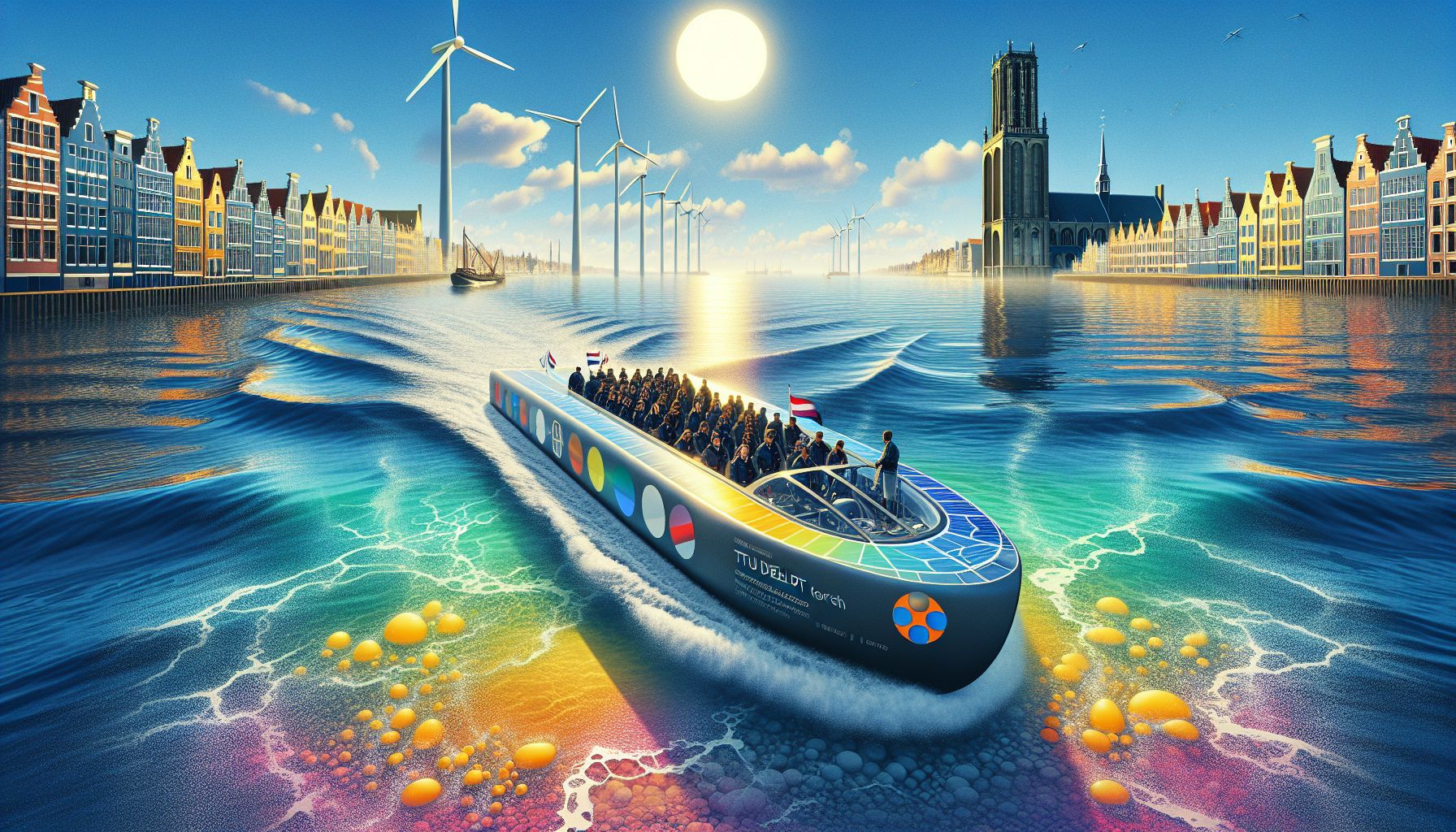Dutch Students Cross North Sea in Groundbreaking Hydrogen-Powered Boat

Eemshaven, Wednesday, 31 July 2024.
TU Delft’s Hydro Motion team successfully navigated the North Sea using a hydrogen-powered boat, covering 160 km in 12 hours. The journey showcases hydrogen’s potential in maritime transport, addressing the shipping industry’s significant carbon footprint.
The Hydro Motion Project
The Hydro Motion project, led by students from TU Delft, aims to demonstrate the viability of hydrogen as a sustainable fuel source for maritime transport. The 8-meter long vessel, equipped with a fuel cell that converts hydrogen from three storage cylinders into energy, embarked on this journey from Breskens, Netherlands on July 11, 2024. The boat’s fuel cell technology underscores hydrogen’s potential to revolutionize the shipping industry by drastically reducing carbon emissions.
Journey and Challenges
The boat covered a distance of 160 km in 12 hours, cruising at an average speed of 40 km/h and consuming only 12 kg of hydrogen fuel. This noteworthy achievement demonstrates the efficiency and practicality of hydrogen-powered vessels. However, the journey was not without challenges. Shortly after departure, the boat encountered a cooling pump failure, necessitating an unscheduled stop in Belgium for repairs. Despite this setback, the team successfully completed the voyage, showcasing the resilience and potential of hydrogen technology in maritime applications.
Hydrogen’s Advantages and Challenges
Hydrogen, with its high energy storage density—approximately 235 times that of lithium-ion batteries—offers a compelling alternative to traditional fossil fuels. The Hydro Motion team advocates for hydrogen as the best way to store green energy, highlighting its potential to significantly reduce the shipping industry’s carbon footprint, which currently accounts for 3% of global carbon emissions. However, the widespread adoption of hydrogen-powered boats faces several hurdles, including high costs, lack of infrastructure, and limited availability of green hydrogen.
Future Prospects and Innovations
The Hydro Motion project is part of a broader trend towards green innovation in maritime transport. Notably, Norway has been a pioneer in this field, launching the world’s first hydrogen-powered ferry, MF Hydra, in 2021, with two additional hydrogen-powered ferries currently under construction. Similarly, the Hydro Motion team’s efforts contribute to the growing body of evidence supporting hydrogen’s viability as a clean energy source for maritime applications. With continued advancements and investments in hydrogen technology, the future of sustainable maritime transport looks promising.

